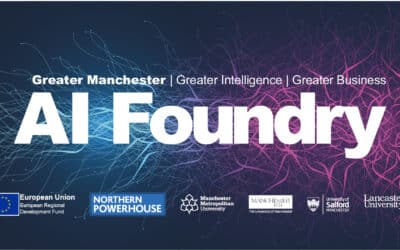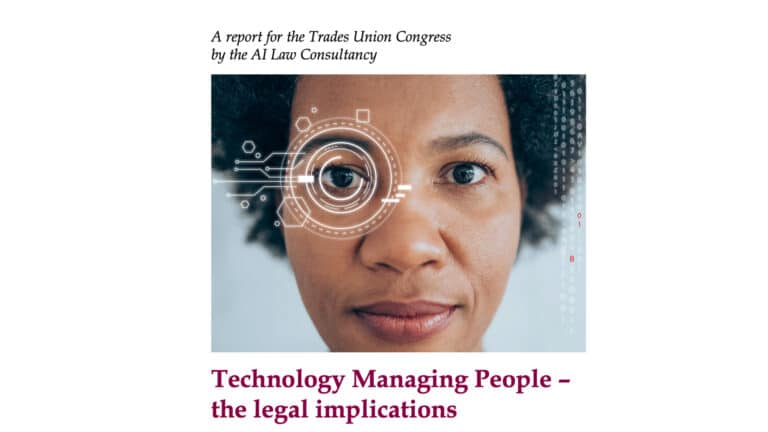The TUC has warned that there are “huge gaps” in British law over the use of artificial intelligence at work.
They believe that the use of AI could lead to “widespread” discrimination and unfair treatment at work.
They have joined forces with employment rights lawyers, Robin Allen QC and Dee Masters from AI Law Consultancy to publish the report, Technology Managing People – The Legal Implications.
It says that unless “urgent” legal protections are put in place, workers would become increasingly vulnerable and powerless to challenge “‘inhuman’ forms of AI performance management.”
“This is a fork in the road,” said TUC General Secretary Frances O’Grady.
“AI at work could be used to improve productivity and working lives. But it is already being used to make life-changing decisions about people at work – like who gets hired and fired. Without fair rules, the use of AI at work could lead to widespread discrimination and unfair treatment – especially for those in insecure work and the gig economy. Every worker must have the right to have AI decisions reviewed by a human manager. And workplace AI must be harnessed for good – not to set punishing targets and rob workers of their dignity.”
The TUC has recommended a series of legal reforms, including:
- A legal duty on employers to consult trade unions on the use of “high risk” and intrusive forms of AI in the workplace;
- A legal right for all workers to have a human review of decisions made by AI systems so they can challenge decisions that are unfair and discriminatory.
- Amendments to the UK General Data Protection Regulation (UK GDPR) and Equality Act to guard against discriminatory algorithms.
- A legal right to ‘switch off’ from work so workers can create “communication free” time in their lives.
The report suggests that the AI has been accelerated by the coronavirus pandemic.
It says that employers are using it to analyse facial expressions, tone of voice and accents to assess candidates’ suitability for roles.
“The TUC is right to call for urgent legislative changes to ensure that workers and companies can both enjoy the benefits of AI,” added Robin Allen QC and Dee Masters.
“Used properly, AI can change the world of work for good. Used in the wrong way it can be exceptionally dangerous. There are currently huge gaps in British law when it comes to regulating AI at work. They must be plugged quickly to stop workers from being discriminated against and mistreated. Already important decisions are being made by machines. Accountability, transparency and accuracy need to be guaranteed by the legal system through the carefully crafted legal reforms we propose. There are clear red lines, which must not be crossed if work is not to become dehumanised.”














